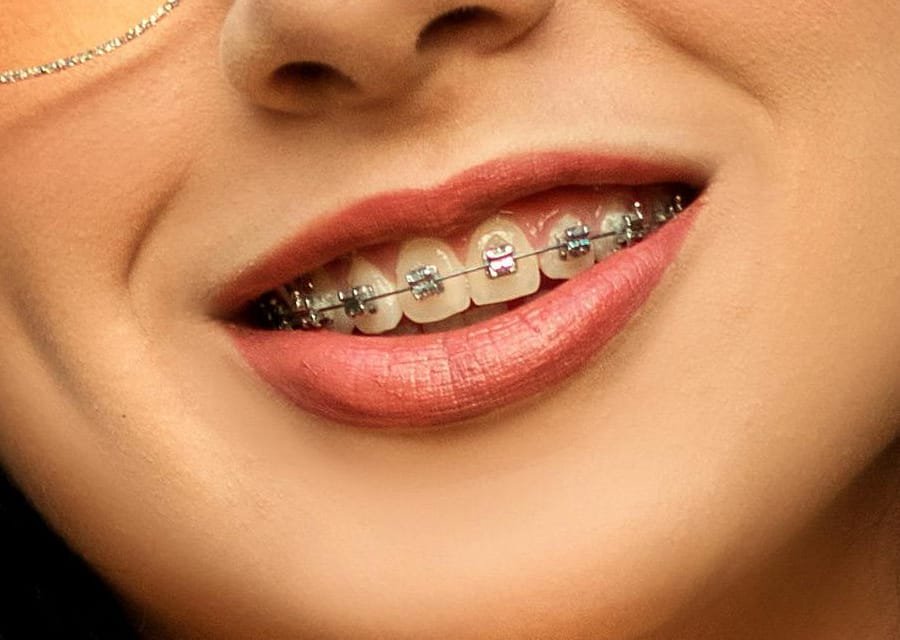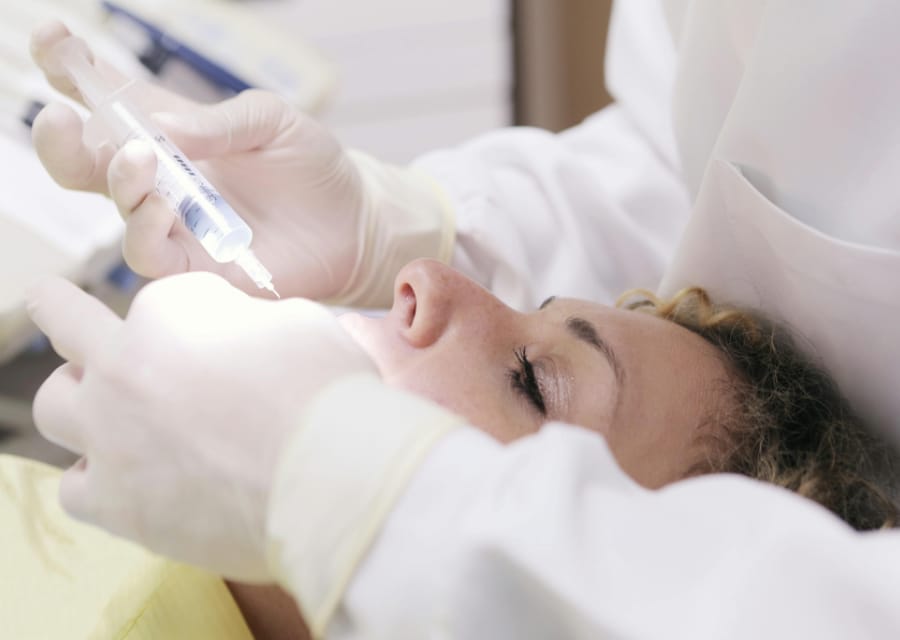
Teeth are meant to be strong and functional, helping us chew food, speak clearly and smile confidently. However, when teeth become unusually sharp—whether because of abnormal growth, wear or other dental issues—they can cause discomfort and even lead to more serious oral health problems. As a dental surgeon, I understand the concerns that come with sharp teeth and the importance of addressing them early to prevent long-term issues.
In this blog post, we’ll explore what causes sharp teeth, how they can impact your oral health and the different treatment options available to help manage or correct the problem.
Why Do Teeth Become Sharp?
Sharp teeth are often the result of certain dental conditions or habits that affect the shape and function of your teeth. Here are some common reasons why teeth may become sharp:
- Tooth Eruption in Children
When children are growing, their baby teeth begin to fall out and permanent teeth emerge in their place. Sometimes, the new teeth come through the gums with rough, sharp edges. This is normal during the early stages of tooth eruption and typically smoothens over time as the teeth wear naturally.
However, if a child has unusually sharp or jagged permanent teeth or if they experience difficulty with biting or chewing, it’s worth consulting a pediatric dentist to ensure proper development.
- Teeth Grinding (Bruxism)
Bruxism is the medical term for teeth grinding and it can occur during the day or at night. People who grind their teeth often unconsciously apply excessive force, which can wear down or sharpen the teeth over time. This may cause the edges of the teeth to become jagged or pointed.
Bruxism is commonly associated with stress or anxiety, but it can also be caused by misaligned teeth or jaw issues. If left untreated, bruxism can lead to enamel wear, tooth sensitivity and even tooth fractures.
- Tooth Misalignment
When teeth are misaligned or crooked, some may protrude or overlap others. This can lead to sharp edges on certain teeth, particularly the canines (the pointed teeth at the sides of your mouth). Misalignment can also affect how the teeth come together when you bite, creating areas of stress where teeth may become worn down or sharpened.
- Dental Wear and Tear
As we age, our teeth naturally undergo wear and tear. Chewing, biting and grinding can cause gradual changes to the shape of our teeth. While some wear is expected, excessive grinding, eating hard foods or poor dental hygiene can lead to uneven or sharp edges. This can cause discomfort when biting or chewing, as well as increase the risk of tooth damage.
- Trauma or Injury
An accident, sports injury or other physical trauma to the mouth can cause a tooth to fracture or break, potentially leaving behind sharp or jagged edges. In some cases, a broken tooth may expose the underlying nerves or pulp, causing pain and sensitivity. It’s important to see a dentist or dental surgeon as soon as possible after trauma to address the damage and prevent complications.
How Do Sharp Teeth Affect Your Oral Health?
Sharp teeth can cause a range of issues that affect both the comfort and health of your mouth. Some common problems caused by sharp teeth include:
- Pain and Discomfort
Sharp teeth can lead to pain, especially when they come into contact with the inside of the lips, cheeks or tongue. This discomfort can make it difficult to eat or speak and if the sharp edge is causing repeated injury to the soft tissues in the mouth, it may result in sores or ulcers.
- Gum Irritation
If a sharp tooth is misaligned or jagged, it can rub against your gums, causing irritation, redness or bleeding. Over time, this can contribute to gum disease, as the gum tissue becomes more vulnerable to infection.
- Difficulty Eating and Speaking
Sharp teeth, particularly those at the back of the mouth (molars) or on the sides (canines), can interfere with your ability to chew food properly. They can also make speaking difficult if they create an obstruction in your mouth. In severe cases, the discomfort may affect your overall quality of life.
- Increased Risk of Tooth Damage
When teeth have sharp edges, they may be more prone to chipping, cracking or breaking. Sharp edges can also exacerbate the damage caused by bruxism (teeth grinding), leading to accelerated enamel wear or fractures that compromise the integrity of the tooth.
How to Fix Sharp Teeth: Treatment Options
If you or your child are dealing with sharp teeth, it’s important to seek professional dental care. A dental surgeon can help identify the cause of the sharpness and recommend appropriate treatments. Here are some common treatment options for sharp teeth:
- Dental Bonding
For teeth that have sharp edges due to wear or minor trauma, dental bonding may be a quick and effective solution. During bonding, a tooth-colored resin is applied to the tooth to reshape and smooth out rough or sharp edges. This procedure is non-invasive and the resin blends in with your natural tooth color, providing a more comfortable and aesthetically pleasing result.
- Dental Contouring (Tooth Shaping)
Dental contouring or tooth reshaping, involves removing small amounts of tooth enamel to smooth out rough or sharp edges. This is a simple and effective procedure that can be performed in one visit to the dentist. Contouring is commonly used for teeth that are slightly misaligned or for canines that have become unusually sharp.
- Crowns and Veneers
If a tooth is severely damaged or worn down, a dental crown or veneer may be recommended. A crown is a cap that fits over a damaged tooth, restoring its shape and function. Veneers are thin shells of porcelain that are bonded to the front surface of teeth to improve appearance and address sharpness caused by uneven wear. These treatments are more involved than bonding or contouring but provide long-lasting results for damaged or misaligned teeth.
- Braces or Clear Aligners
If sharp teeth are caused by misalignment, orthodontic treatment may be necessary. Braces or clear aligners (such as Invisalign) can gradually move teeth into their correct positions, reducing sharpness and improving the bite. Orthodontic treatment not only helps with sharp teeth but also improves overall dental health by aligning the teeth for better function and hygiene.
- Mouthguards for Bruxism
If teeth grinding or clenching is the cause of sharp teeth, wearing a custom-fitted mouthguard at night can help protect the teeth from further damage. A mouthguard absorbs the pressure from grinding and prevents the teeth from becoming overly worn or sharp. If bruxism is causing your teeth to become sharp, it’s important to address the underlying stress or anxiety contributing to the habit.
- Tooth Extraction
In some cases, if a tooth is severely fractured or damaged and cannot be restored, the best solution may be tooth extraction. After the tooth is removed, your dentist will discuss options for replacing it, such as a dental implant or bridge, to restore function and aesthetics.
Conclusion
Sharp teeth may seem like a small issue, but if left untreated, they can lead to pain, discomfort and more serious dental problems. Whether caused by tooth eruption, grinding, misalignment or injury, it’s important to seek treatment from a dental surgeon to address the issue and protect your oral health.
With a variety of treatment options available—from simple dental bonding to orthodontic care—your dental surgeon can help smooth out sharp teeth and improve your comfort and oral function. If you’re concerned about sharp teeth or notice discomfort, don’t hesitate to schedule a consultation with your dentist or dental surgeon. Early intervention can help prevent further damage and keep your smile healthy for years to come.
To schedule an appointment at ‘Sukumar Dental Clinic’ call +91-7418210108 or WhatsApp Dr. Sukumar at +91-9655225002. We take pride in having the top dental clinic in Palayamkottai, Tirunelveli. Alternatively, you can email us at info@sukumardental.com


